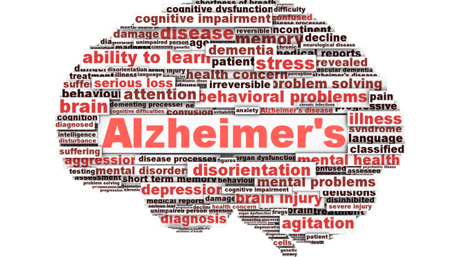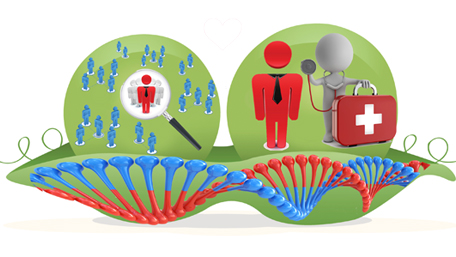
10/17/2019
Hot Topics of the Day are picked by experts to capture the latest information and publications on public health genomics and precision health for various diseases and health topics. Sources include published scientific literature, reviews, blogs and popular press articles.
Sign up MyPHGKB to receive the daily hot topic email alert.
Archived Hot Topics of the Day By Date
What’s the “value” of exome sequencing in children with neurodevelopmental disorders?
MJ Khoury, CDC Blog Post, October 16, 2019

Tracking human genes along the translational continuum
K Lee et al, NPJ Genomic Medicine, October 16, 2019
Association of Acquired and Heritable Factors With Intergenerational Differences in Age at Symptomatic Onset of Alzheimer Disease Between Offspring and Parents With Dementia
GS Day et al, JAMA Network Open, October 2019
Understanding Precision Medicine And AI Within The Life Cycle Of Technology Revolutions
D Shaywitz, Forbes, October 16, 2019
Artificial intelligence aims to improve cancer screenings in Kenya
N Westman, Nature Medicine, October 16, 2019
Mapping 123 million neonatal, infant and child deaths between 2000 and 2017
R Burstein et al, Nature, October 176 2019
20-Year Follow-up of Statins in Children with Familial Hypercholesterolemia
IK Luirink et al, NEJM, October 17, 2019
Direct-to-consumer genetic testing
R Horton et al, BMJ, October 16, 2019
Beyoncé’s Dad Has a Mutation More African-Americans Should Be Tested For An inherited gene that can be discovered early caused Matthew Knowles’s breast cancer.
E Stallings, NY Times, October 16, 2019
Disclaimer: Articles listed in Hot Topics of the Day are selected by Public Health Genomics Branch to provide current awareness of the scientific literature and news. Inclusion in the update does not necessarily represent the views of the Centers for Disease Control and Prevention nor does it imply endorsement of the article's methods or findings. CDC and DHHS assume no responsibility for the factual accuracy of the items presented. The selection, omission, or content of items does not imply any endorsement or other position taken by CDC or DHHS. Opinion, findings and conclusions expressed by the original authors of items included in the Clips, or persons quoted therein, are strictly their own and are in no way meant to represent the opinion or views of CDC or DHHS. References to publications, news sources, and non-CDC Websites are provided solely for informational purposes and do not imply endorsement by CDC or DHHS.
- Page last reviewed:Feb 1, 2024
- Page last updated:Apr 18, 2024
- Content source:










